The gut microbiome performs essential functions, from breaking down nutrients to synthesizing vitamins like B12 and K. It acts as a barrier against pathogens, modulates the immune system, and communicates with the brain via the gut-brain axis. A balanced microbiome supports efficient digestion, reduces inflammation, and enhances nutrient absorption. Conversely, dysbiosis—an imbalance in microbial composition—is linked to conditions like irritable bowel syndrome (IBS), obesity, type 2 diabetes, depression, and autoimmune disorders.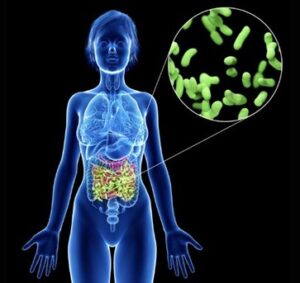
The gut-brain axis highlights the microbiome’s influence on mental health. Microbes produce neurotransmitters like serotonin and gamma-aminobutyric acid (GABA), impacting mood and cognitive function. Studies show that individuals with depression often exhibit altered gut microbiota, suggesting that microbiome-targeted interventions could complement traditional therapies. Additionally, the microbiome regulates systemic inflammation, a driver of chronic diseases. A diverse microbial community produces short-chain fatty acids (SCFAs) like butyrate, which strengthen the gut lining and reduce inflammation, lowering the risk of conditions like cardiovascular disease.
Why Gut Health Matters
Maintaining gut health is pivotal for longevity and quality of life. A healthy gut enhances immune resilience, with 70% of the immune system residing in the gut-associated lymphoid tissue (GALT). It also optimizes metabolism, aiding weight management and energy regulation. For women, gut health influences hormonal balance, with implications for menstrual cycles, menopause, and fertility. Moreover, gut health supports skin health, as dysbiosis can exacerbate conditions like acne or eczema.
The modern lifestyle—marked by processed foods, stress, and antibiotic overuse—disrupts microbial diversity. Diets low in fiber and high in sugar, starve beneficial microbes while promoting harmful ones. Antibiotics, while life-saving, can decimate gut flora, requiring intentional recovery strategies. Environmental factors, like exposure to pollutants, further challenge gut integrity. Thus, proactive measures are essential to restore and maintain a thriving microbiome.
Strategies for Optimizing Gut Health
To support gut health, individuals can leverage probiotics, fermented foods, personalized microbiome testing, and collagen peptides. Below are evidence-based tips for incorporating these tools effectively.
- Probiotics: Restoring Microbial Balance
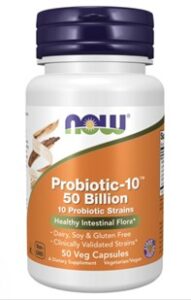 Probiotics are live microorganisms that confer health benefits when consumed in adequate amounts. They replenish beneficial bacteria, improve digestion, and reduce inflammation. Common strains include Lactobacillus and Bifidobacterium, found in supplements and fermented foods.
Probiotics are live microorganisms that confer health benefits when consumed in adequate amounts. They replenish beneficial bacteria, improve digestion, and reduce inflammation. Common strains include Lactobacillus and Bifidobacterium, found in supplements and fermented foods.
- Tip: Choose the right probiotic with diverse strains and a high colony-forming unit (CFU) count (10–50 billion CFUs daily). Look for third-party-tested products to ensure quality. We love our NOW branded probiotic with 10 different strains and over 25 billion CFUs.
- Tip: Take consistently as probiotics require regular consumption to maintain benefits. Take them with food to enhance survival through stomach acid. Pair with prebiotics (fiber-rich foods) to nourish probiotic growth.
- Caution: Start with a low dose to avoid temporary bloating.
- Fermented Foods: Natural Microbial Boosters
Fermented foods like kimchi, sauerkraut, kefir, and kombucha deliver live microbes and bioactive compounds. They enhance microbial diversity and provide enzymes that aid digestion. Regular consumption is linked to improved gut barrier function and reduced inflammation.
- Tip: Incorporate variety and aim for 1–2 servings daily, choosing unpasteurized products to ensure live cultures. Start with small portions (e.g., ¼ cup kimchi) to assess tolerance. Rotate options to diversify microbial exposure.
- Tip: Make your own homemade fermented foods to allow for control over ingredients and fermentation time. Simple recipes, like lacto-fermented vegetables, are cost-effective and customizable.
- Caution: High sodium content in some ferments may be a concern for those with hypertension. Opt for low-sodium versions or rinse before eating.
- Personalized Gut Microbiome Testing: Precision Health
At-home microbiome testing kits, offered by companies like Viome and Thorne, analyze stool samples to provide insights into microbial composition, diversity, and function. These tests identify imbalances, recommend tailored diets, and suggest specific probiotics or supplements.
- Tip: Select reputable providers and companies with validated methodologies and clear, actionable reports. Ensure they protect data privacy, as genetic and microbial information is sensitive.
- Tip: Act on the results and use the test results to adjust diet, focusing on recommended foods. Retest every 6–12 months to track progress.
- Collagen Peptides: Supporting Gut Integrity
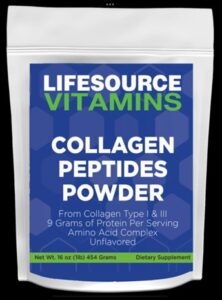 Collagen peptides, derived from hydrolyzed collagen, are amino acid-rich supplements that support gut lining repair. They strengthen the intestinal barrier, reducing “leaky gut” and inflammation. Emerging research suggests collagen may promote beneficial bacteria growth.
Collagen peptides, derived from hydrolyzed collagen, are amino acid-rich supplements that support gut lining repair. They strengthen the intestinal barrier, reducing “leaky gut” and inflammation. Emerging research suggests collagen may promote beneficial bacteria growth.
- Tip: Choose High-Quality Sources with grass-fed, sustainably sourced collagen peptides free of additives. Types I and III are most relevant for gut health. Mix 10–20 grams daily into smoothies, coffee, or soups.
- Tip: We love our Lifesource collagen peptides. Added into your morning coffee can add a great boost to your gut health each day.
Integrating These Strategies
For optimal gut health, combine these approaches within a holistic framework. A fiber-rich diet (25–35 grams daily) from vegetables, fruits, and whole grains feeds beneficial microbes. Hydration supports digestion, while stress management—through yoga or an evening walk—reduces cortisol’s negative impact on the gut. Regular exercise, particularly low-impact activities, enhances microbial diversity.
A sample daily plan might include:
- Breakfast: Greek yogurt with berries and a collagen peptide smoothie.
- Lunch: A salad with fermented pickles and prebiotic-rich artichokes.
- Snack: Kombucha or a handful of fiber-rich nuts.
- Dinner: Grilled salmon with sautéed greens and a side of kimchi.
- Supplement: A multi-strain probiotic taken with dinner. Also, add GABA to your day if you are struggling with anxiety and sleep problems.
Conclusion
The gut microbiome is a dynamic regulator of health, influencing digestion, immunity, mental well-being, and disease prevention. In 2025, tools like probiotics, fermented foods, personalized testing, and collagen peptides empower individuals to optimize gut health with precision. By adopting these strategies thoughtfully—choosing quality products, starting gradually, and integrating them into a balanced lifestyle—individuals can harness the microbiome’s potential to enhance longevity and vitality. As research advances, the gut microbiome will remain a focal point of wellness, underscoring the adage that health truly begins in the gut. At [Core] our goal is to be a conduit of health information combined with effective chiropractic and acupuncture treatments to see you become healthier than you have ever been.




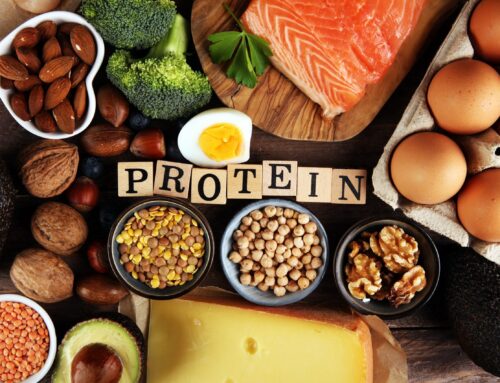
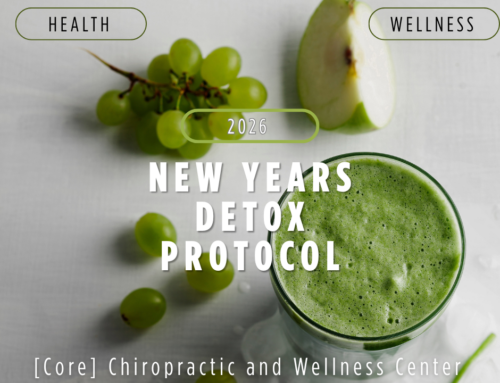

![[LivFit] Approach To Inflammation, Depression, and Weight Loss](https://www.coreroanoke.com/wp-content/uploads/2025/10/liv-fit-500x383.jpg)